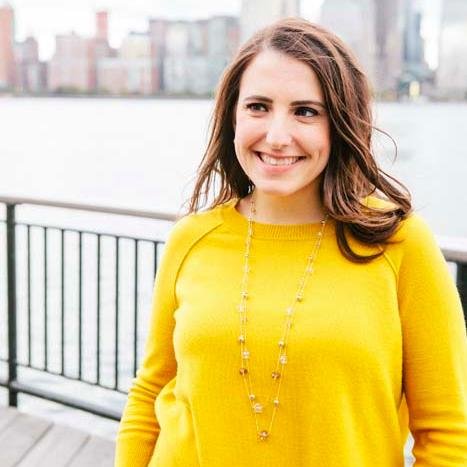 Relationships—even sacred relationships—are not static. While there may have been glorious moments of deep commitment and mutual love in the past, sometimes the past isn’t enough to sustain the future. Because people change, and time and life’s experiences can be challenging, every relationship must also evolve. Even the most profound covenants and commitments between us sometimes need to be renewed or reestablished. But is this true even of our relationship with God? Isn’t our covenantal commitment with God unqualified and beyond limitation? Wasn’t the covenant established with the Revelation of Torah at Mount Sinai enough?
Relationships—even sacred relationships—are not static. While there may have been glorious moments of deep commitment and mutual love in the past, sometimes the past isn’t enough to sustain the future. Because people change, and time and life’s experiences can be challenging, every relationship must also evolve. Even the most profound covenants and commitments between us sometimes need to be renewed or reestablished. But is this true even of our relationship with God? Isn’t our covenantal commitment with God unqualified and beyond limitation? Wasn’t the covenant established with the Revelation of Torah at Mount Sinai enough?
In an attempt to summarize Moses’ final orations in the beginning of Deuteronomy, the text of this week’s Torah portion, Ki Tavo, emphasizes something very powerful about Moses’ third oration: it calls for an additional covenant to be made between the Holy One and the people of Israel. “These are the terms of the covenant which the Eternal commanded Moses to conclude with the Israelites in the land of Moab, in addition to the covenant which He had made with them at Horeb” (Deut. 28:69). On the high-stakes journey between Sinai and Jerusalem a new covenant was needed.
A new covenant? Why was a new one needed? When the covenant was made at Mount Sinai the people of Israel accepted it wholeheartedly and committed themselves to observe the Torah and its commandments, as we saw in Exodus: “Then he [Moses] took the record of the covenant and read it aloud to the people. And they said, ‘All that the Eternal has spoken we will faithfully do!’ ” (Ex. 24:7).
But the Sages of the Talmud (Shabbat 88a) recognized that the kind of covenant established initially was in a particular context. In a shocking midrashic explanation of the verse “And they took their places at the foot of the mountain” (Ex.19:17), R. Avdimi bar Hama bar Hasa made the following radical assumption about what really happened at Sinai: “This teaches that God held the mountain over their heads and said to them 'If you accept my Torah, good. If not, here will be your graves!’ ” In other words, God threatened the Israelites with death! They must accept the Torah or else they would be killed. According to this reading we entered the covenant with God under duress. If so, how can such a covenant be binding?
The coercive element in the covenant at Mount Sinai can be interpreted in various ways. Rabbeinu Tam (1100-1171), a French medieval halachic commentator, ascribes the coercion to Divine Revelation at Mount Sinai: “For it was by the Word [of God], albeit under duress.” In other words, direct Revelation of God created a situation in which there was no free choice, for who can refuse the direct word of God? (see the Tosafot on the same passage). But still, a two-fold problem remains: did the Israelites voluntarily accept the covenant and, if not, is it binding?
Other Sages of the Talmud recognize the deep theological problem Avdimi bar Hama had suggested, and Rav Aha bar Yaakov responds: “Thus we learn an important thing about the Torah.” That important thing, say other commentators, is the warning about the necessity and power of Torah, and our covenant with God. Some scholars, like the modern French Jewish Philosopher Emmanuel Levinas (1906-1995) teach that, in fact, choosing Torah and entering into the covenant is the choice between life and death. A covenant with God affirms life in juxtaposition to the death and suffering of Egypt, and the death-worshipping of other cultures. Our covenant with God and, in fact, Judaism as a whole, is ultimately about choosing life.
Yet the problem of whether or not the Israelites actually voluntarily accepted the covenant with God still shouts out from the Talmud passage. Did we really accept the covenant voluntarily or if we entered into the covenantal relationship with God at Sinai under duress is the covenant really binding? The next line of the Talmudic text, however, is perhaps the most important: ‘’Said Rava, ‘Nevertheless [it is binding] for they accepted it again in the days of Ahasuereus, as it is written “The Jews upheld that which had been accepted,” (Esther 9:27) they agreed to uphold that which they had already accepted.’ ”
Relying on a new proof text to confirm that in fact we did accept the covenant voluntarily and that, yes, it still claims us, Rava—a later Babylonian Sage—presents an even more compelling argument about the covenant. Yes, we did and do accept the covenant voluntarily, but we did so hundreds of years after Sinai in a very different context. Only after generations of living with Torah could the covenant be fully embraced. In each generation we must understand the covenant anew and embrace it in new ways.
Long before the Book of Esther or the Sages of the Babylonian Talmud who come together to respond to these questions with the benefit of great historical distance, the Deuteronomist already knew that the covenant between the Israelites and God established at Mount Sinai needed to be reframed. This is precisely the predicament of the Israelites in Parashat Ki Tavo.
As the Israelites are straddled between two mountains on their way to a new reality, Moses advises them to rethink the covenant. The covenant delivered on the plains of Moab created what can be described as the establishment of mutual accountability within the Jewish people.
This mutual accountability requires that we are mindful of each other. We are not just a collection of individuals; our future also depends upon our capacity to live as a community, a well-formed collective entity. The Israelites became a people in the full sense of the word only after the covenant on the plains of Moab: “To enter into the covenant of the Eternal your God, which the Eternal your God is concluding with you this day, with its sanctions: in order to establish you this day as God’s people and in order to be your God, as promised you ... ” (Deut. 29:11-12).
While our sense of peoplehood began once we left Egypt and was declared at Mount Sinai, only upon entering the Land was it clear to the people themselves that their future depends upon mutual commitment. We become a people who are able to live out the possibilities of covenant only when we understand collectively and are committed together to whatever the future might demand.
When there is so much at stake on the journey toward the future, the opportunity to pause and renew our commitments not only to God, but also to each other can be the difference between floundering and flourishing. All commitments—all covenants—are regularly in need of reexamination. And in order to embrace the future together it is quite possible that the covenants of the past will not be enough.
Especially at this time of the year, and in this age of Reform Judaism, we too need to renew our commitments and our understanding of covenant and mutual responsibility. What claims us now, and why? Is there any limit to our proud autonomy that also allows simultaneously for some authority of the tradition? Ultimately and especially in this moment our mutual commitment both to each other and to our broader sense of Jewish peoplehood will be powerful sources for the covenants we need in order to thrive in the future.

As the summer comes to an end, our Torah reading cycle mirrors the sense of longing for more time while simultaneously preparing for what is to come. In Parashat Ki Tavo, Moses continues his last speech before the Israelites, instructing them in the laws of the bikurim, the “first fruits” (Deut. 26:1-11). He paints a picture for the people, one of potential and abundance, fertility and hope. And, he tells them there will come a time in the future once they cross the Jordan into the Promised Land when they will have defeated their enemies, established a home, planted seeds, and watched them bloom into edible crops.
On the surface this may not seem noteworthy. But given the generation-long wandering of the people and their many struggles during the process, this moment of picking fruit from the vine and tree in the Land of Israel is truly miraculous. Moses is asking the people to continue to live with hope, even when there is so much uncertainty.
In the Babylonian Talmud (Shabbat 31a), the Rabbis discuss seven questions that each person will be asked upon entering the World to Come, including one most relevant to our parashah: Did you live with hope?
The Jewish people are not strangers to hope; in fact, we are a people that has planted and harvested hope in every generation and community in our history. It is truly remarkable to think that a people that has lived in the shadows of pogroms and crusades, expulsions, and concentration camps, is a people of such persistent optimism. What other people could walk into the gas chambers sick and pale, yet with words of hope on our lips, singing Ani Ma-amin (“I Believe”). What other people but the Jews of the modern State of Israel, who live in one of the scariest neighborhood in the world, could have the chutzpah to name their national anthem “The Hope!”
For Israelites entering the Land, Jews living through persecution, or our lives today pessimism would be an easier state—cynicism means we’ll never be disappointed. But hope means that something can be better. Like the psychologist and holocaust survivor Viktor Frankl wrote, “the last and great human freedom is the freedom to choose your attitude.”1 Hope is the sign that we too believe in the power to choose our attitude.
So let me ask, are you, like Moses, an optimist? Is your cup half full or half empty? Let us not wander in the desert aimlessly. Rather, let us make plans to plant, so we can harvest and ultimately, thank our Creator for the first fruits of the future.
1. Viktor Frankl, Man’s Search for Meaning (Boston: Beacon Press, 1959)
Ki Tavo, Deuteronomy 26:1–29:8
The Torah: A Modern Commentary, pp. 1,508–1,537; Revised Edition, pp. 1,347–1,367
The Torah: A Women’s Commentary, pp. 1,191–1,216
Sixth Haftarah of Consolation, Isaiah 60:1–22
The Torah: A Modern Commentary, pp. 1,614–1,617; Revised Edition, pp. 1,368–1,371
Selichot services begin after Shabbat

